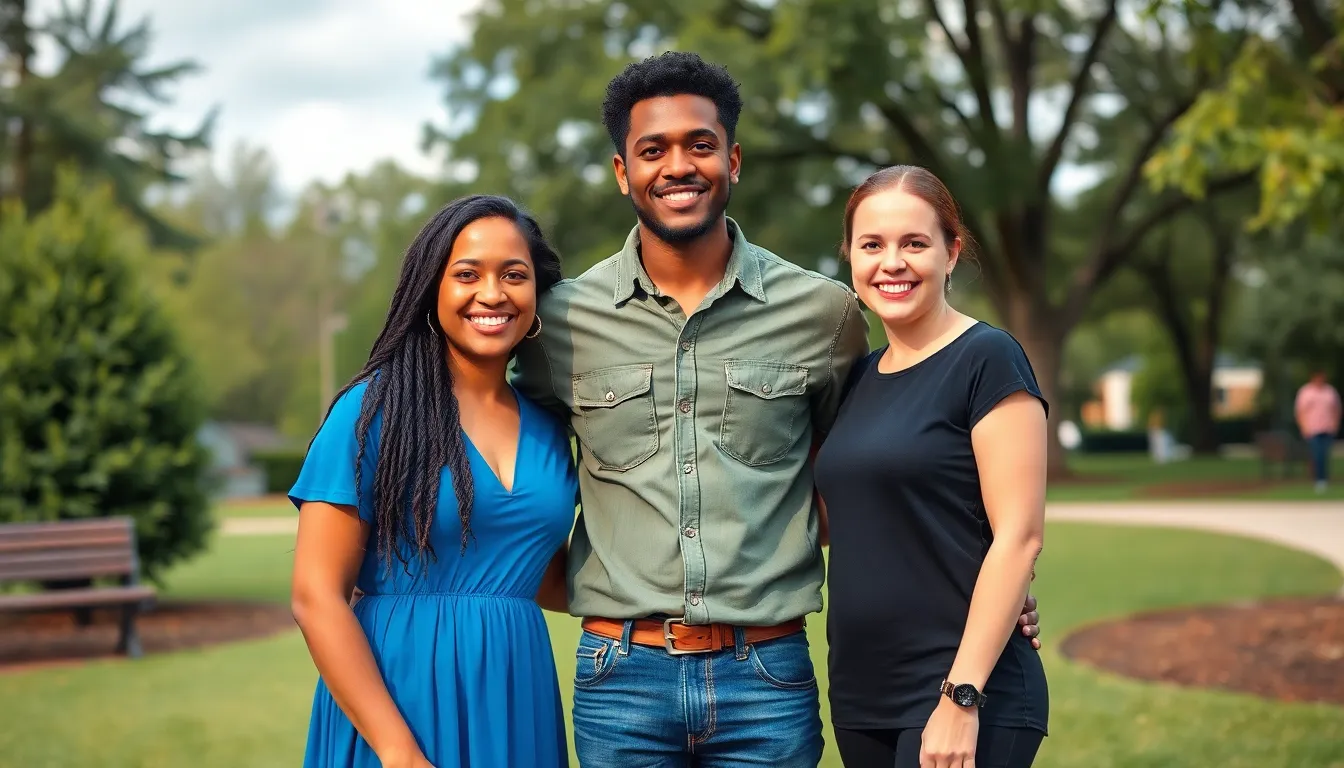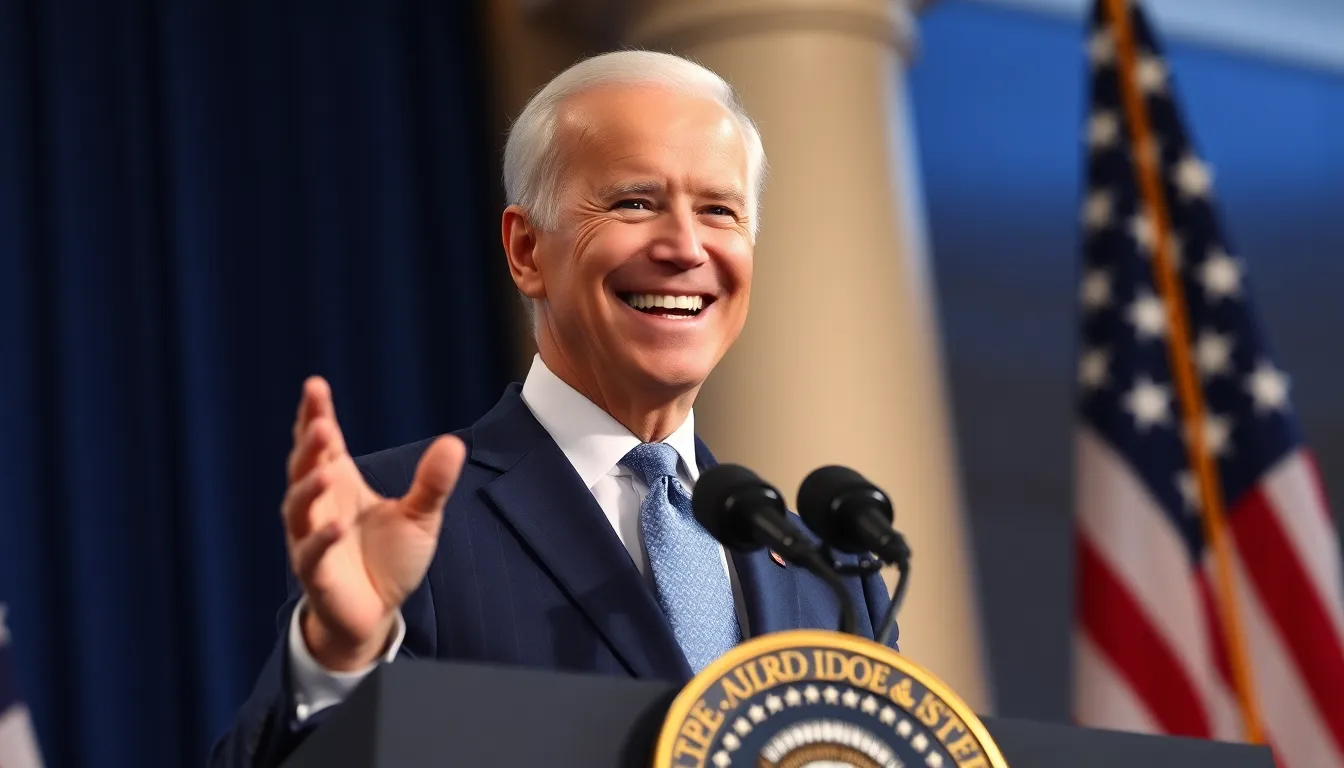In a significant move that’s captured national attention, President Biden has granted pardons to a select group of individuals today. These decisions reflect his administration’s ongoing commitment to criminal justice reform and the belief in second chances. Each pardon carries a unique story, shedding light on the complexities of the justice system and the lives impacted by it.
As the nation watches closely, these pardons not only affect the recipients but also resonate with broader discussions about fairness and rehabilitation. Understanding who received clemency today offers insight into the administration’s priorities and the evolving landscape of justice in America.
Table of Contents
ToggleOverview of Presidential Pardons
Presidential pardons serve as a powerful tool for executive clemency. These acts of forgiveness allow the President to absolve individuals of federal crimes, providing them a chance for rehabilitation and reintegration into society. Pardons often address injustices within the legal system, demonstrating compassion and a belief in second chances.
Historically, pardons have played a significant role in American governance. Every President, from George Washington to Joe Biden, has utilized this authority to correct perceived wrongs or to illustrate shifts in policy. Pardons can reflect the administration’s priorities, shaping public perception and influencing discussions surrounding criminal justice reform.
Biden’s recent pardons exemplify a focus on restorative justice. By granting clemency, he underscores the imperative of acknowledging past mistakes while promoting fairness in the justice system. Each case represents a unique narrative, highlighting the complexities faced by individuals affected by harsh sentencing laws.
The process involves careful consideration of the individual’s conduct, circumstances leading to the conviction, and the potential benefit of a pardon to both the recipient and society. By using this power judiciously, Biden aims to foster a more equitable legal environment, reinforcing the message that redemption is achievable.
Recent Pardons by Joe Biden

President Biden granted pardons to several individuals, reaffirming his administration’s dedication to reforming the criminal justice system. Each case reflects a commitment to fairness and rehabilitation.
Key Individuals Pardoned
- Jasmine L.
Jasmine L. received a pardon for a 2008 drug-related conviction. Her advocacy work in addiction recovery and community outreach exemplifies her commitment to positive change.
- Marcus H.
Marcus H. was pardoned for a non-violent offense from 2010. He has since dedicated his life to mentoring at-risk youth, demonstrating the potential for personal growth and reintegration into society.
- Julia M.
Julia M. obtained a pardon for a 2015 firearm conviction. Actively involved in local charities, she focuses on promoting social justice and helping marginalized communities.
Reasons for Pardons
- Non-Violent Offenses
Many pardons target individuals with non-violent convictions. The administration aims to address over-incarceration and the long-term impacts of minor drug offenses on families and communities.
- Rehabilitation Efforts
The administration considers each individual’s efforts toward rehabilitation, such as community service or ongoing education. Highlighting personal growth underlines the possibility of redemption.
- Social Justice Advocacy
Many recipients engage actively in social justice initiatives. Their work highlights the importance of transforming lives beyond their past mistakes, reinforcing the message of second chances.
- Impact on Families
Pardons significantly affect the family dynamics of those convicted. Restoring individuals to their families fosters healing and promotes social stability within communities.
These pardons illustrate a nuanced approach to justice, reflecting a transformative perspective that emphasizes the importance of accountability and rehabilitation within society.
Impact of Today’s Pardons
Today’s pardons carry substantial legal and social ramifications, influencing both justice policies and community dynamics. The administration’s choices reflect broader reforms aimed at enhancing restorative justice and social equity.
Legal and Social Implications
Pardons act as a corrective measure within the justice system, offering a framework for reevaluating past criminal convictions. By focusing on non-violent offenses, the pardons address issues related to over-incarceration, particularly regarding minor drug-related crimes. This approach highlights the commitment to rehabilitation over punishment and encourages the legal system to adopt a more lenient perspective on similar cases in the future. As pardoned individuals reintegrate into society, their ability to access employment, housing, and educational opportunities improves, which can lead to reduced recidivism rates. The downstream effect may lead to legislative changes that further simplify the pardon process, making it more accessible for individuals seeking redemption.
Public Reactions
Public response to today’s pardons is diverse, reflecting a range of opinions about justice and second chances. Advocacy groups laud the decisions as significant steps toward dismantling systemic inequalities, with many expressing hope that these actions inspire similar reforms nationwide. Critics, however, question the motivations behind the pardons, arguing that they may not go far enough in addressing larger systemic issues. Media outlets report on varying perspectives, highlighting conversations about public safety, rehabilitation, and fairness in the justice system. Overall, these reactions contribute to a growing discourse on the need for comprehensive criminal justice reform.
President Biden’s recent pardons mark a significant moment in the ongoing dialogue about justice and rehabilitation in America. By focusing on non-violent offenses and highlighting individual stories of redemption, these decisions reflect a commitment to reforming a system often criticized for its inequities.
The impact of these pardons extends beyond the recipients, fostering healing within families and communities. They also signal a shift in how justice is approached, emphasizing restoration over punishment. As public discourse evolves around these issues, the administration’s actions may pave the way for broader legislative changes aimed at creating a more equitable legal landscape.



